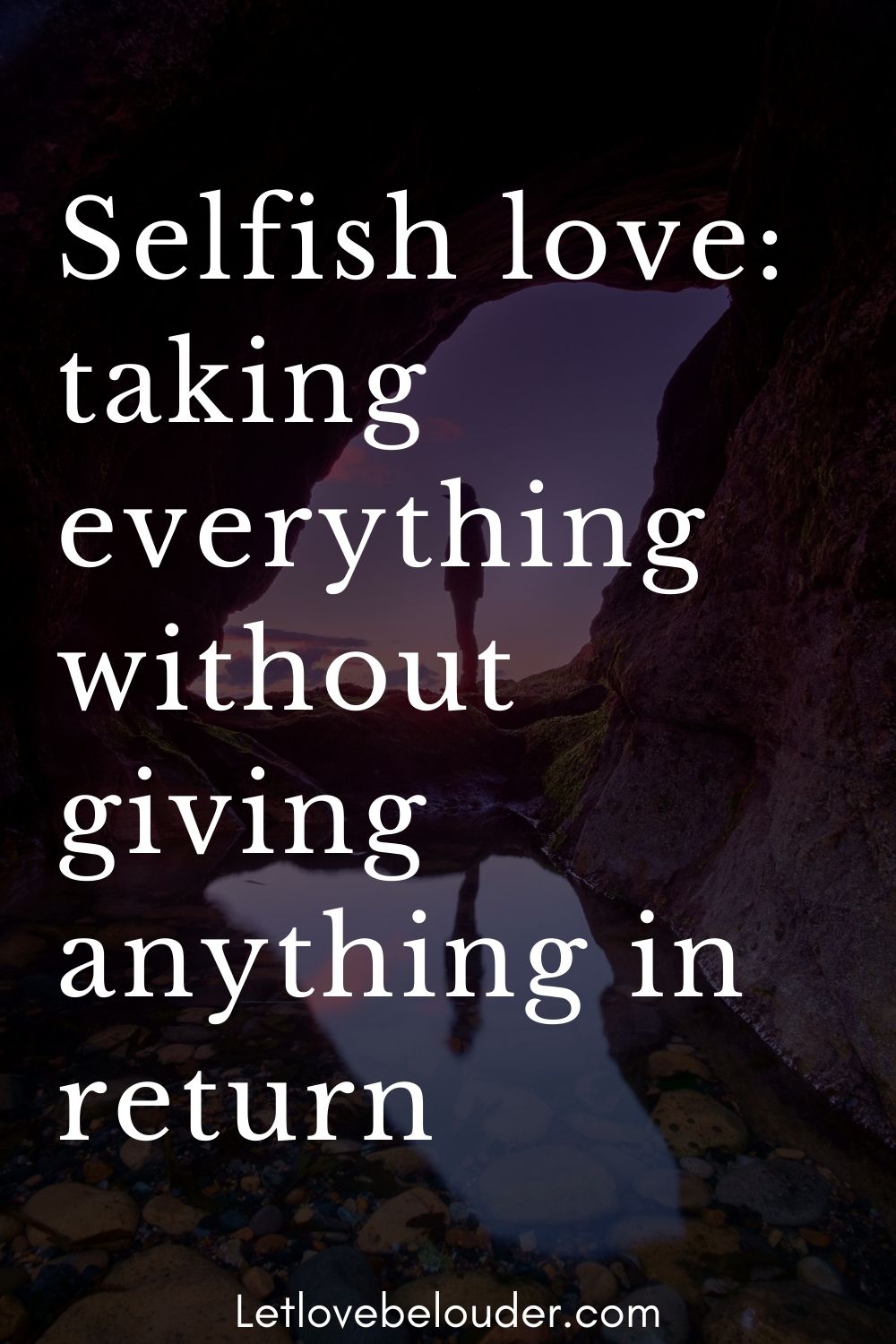Selfish love can be destructive to those who fall victim to it. Some see emotional relationships only as a way to meet their own needs. These people are takers and are looking for donors.
Sometimes making selfish decisions and putting your needs first can be positive and necessary for self-esteem. Thinking of yourself first once in a while is healthy behavior if it is sparingly.
However, here we are talking about selfish love, an unhealthy selfishness that is potentially harmful and destructive.
One of the first authors to approach the subject of selfish love was Erich Fromm. According to him, for some, relationships are a tool that enables giving and receiving.
When John Gottman, a relationship therapist, shared his theory about the four horsemen heralding a breakup, he didn’t bring up selfishness in the relationship.
According to this psychologist, the four horsemen are: contempt, indifference, defensive attitude, and criticism.
However, there is a fifth just as harmful and destructive as the other four, and that is selfishness.
If he didn’t mention it, it’s probably because there is a certain notion of selfishness in each of these riders. When a person despises, harms, criticizes, or shows indifference towards their partner, there is a certain form of selfishness there.
Looking back it all seems obvious to us, but when we are in the relationship we can be blinded by love. Many of us have already taken all the risks in love for someone who seemed perfect. However, once she got everything she wanted from us, she revealed her true face to us and broke our hearts.
In reality, selfish people are incapable of loving because they don’t love themselves.
This selfishness is the result of the inability to love yourself. As Erich Fromm points out in his work The Art of Loving, selfish people do not love each other. They feel deep frustration with this lack of self-esteem and use emotional relationships to fill this void.
In 2002, a study was carried out by the Department of Psychology at New York University, to compare selfishness and altruism.
The study found that altruists feel more fulfilled emotionally and personally. They give freely of their time and resources because it gives them a feeling of well-being.
Nevertheless, the selfish seek what they do not have. They cannot offer anything to others since they have only lacks.
Selfishness in love is therefore the result of a lack of self-esteem, security, and self-esteem.
Not only is this behavior toxic, it is also painful. To preserve yourself, it is therefore essential to move away when you begin to observe this destructive behavior.
So, it reminds us once again that loving yourself is essential in order to be able to love another person.
As Oscar Wilde said: “Loving yourself is the beginning of a story that will last a lifetime. “
